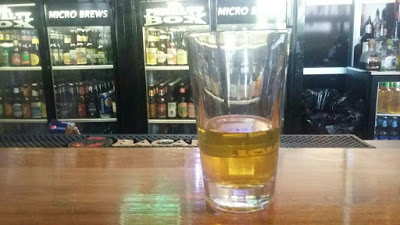
The agreement will modernize New York’s 80-year-old Alcoholic Beverage Control Law to allow alcohol to be sold at 10 a.m. on Sundays at bars, taverns and restaurants and allows those establishments to apply for a license to allow sales as early at 8 a.m. on 12 days a year.
It also “adds commonsense provisions to broaden retail sales by producers, and reduces burdensome fees for wineries, distilleries, breweries and cideries statewide,” according to the governor’s office.
“We’ve worked hard to cut red tape, lower costs and roll back burdensome regulations to help New York’s craft beverage industry thrive and create jobs, as well as some of the best beer, wine, cider and distilled spirits in the world,” Cuomo said this afternoon. “This agreement to overhaul this state’s archaic blue laws will build upon these ongoing efforts by knocking down artificial barriers for restaurants and small businesses and helping this industry grow even stronger.”
Senate Majority Leader John Flanagan said, “There was broad consensus between the Governor and Legislature that New York’s blue laws were outdated and in need of reform, specifically the provision which barred those enjoying brunch from purchasing an alcoholic beverage before noon on Sunday. Working with our colleagues in government, I am pleased we were able to arrive at an agreement to make common-sense changes that reduce red tape and eliminate regulations, help businesses grow and thrive, and reflect the overwhelming wishes of consumers all across this state.”
Assembly Speaker Carl Heastie said, “As New Yorkers, we are fortunate to have a wealth of resources at our fingertips that allow us the opportunity to craft some of the best wine, beer, cider and spirits in the country. This legislation represents our ongoing commitment to the beverage and hospitality industries so that they can continue to showcase the best of what New York has to offer. By making it easier to do business here, we will encourage new business development, inspire tourism and open the door for new ventures.”
Other terms of the agreement, according to the governor’s office, will:
- Eliminate Burdensome Paperwork Requirements for Craft Manufacturers: At the 2012 Wine, Beer and Spirits Summit, Governor Cuomo ended the State Liquor Authority’s policy prohibiting multiple manufacturing licenses at the same location, recognizing the additional burdens this placed, for example, on a small winery that wanted to also make whiskey – including building a separate facility. However, businesses holding multiple licenses must still file paperwork and renewals for each separate license. The agreement combines craft manufacturing licenses into one application to reduce burdensome paperwork for these small businesses.
- Authorize the Sale of Wine in Growlers: Current law requires that wine sold at retail for off-premises consumption be kept in their original sealed containers, and consequently, New York wineries are prohibited from filling growlers. This prohibition unduly burdens wineries that can open a container to sell wine for on-premises consumption, or can sell wine for off-premises consumption, but cannot fill a growler to be taken away from the winery. The agreement enacts a common sense change to the law to allow wineries to fill their customer’s growlers. In addition, the agreement authorizes wineries and farm wineries to allow customers to take home partially finished bottles of wine.
- Reduce Fees for Craft Beverage Salespeople: The ABC Law currently requires that any salesperson or solicitor employed by a manufacturer or wholesaler must obtain a solicitor’s permit in addition to a bond. Recognizing the financial hardship imposed by these unnecessary additional fees, the agreement eliminates the fee for a solicitor’s permit for craft manufacturers and removes the bond requirement for all manufacturers.
- Reduced Fees for Small Wholesalers: The primary business of most alcohol beverage wholesalers is selling their products to licensed retailers, such as bars, restaurants and liquor stores. However, there are currently a number of small wholesalers in New York that sell limited number of brands they import directly to large wholesalers for distribution to retailers. Under the current law, these small wholesalers must pay the same amount for their license as their larger counterparts, with costs ranging from $1,460 for a one year beer license to $27,280 for a three year liquor wholesale license. This financial burden often requires these small businesses to make a choice between continuing to hold a New York wholesale license or to relocate their business outside of New York. The agreement amends the ABC Law to create a low-cost “importer’s license” that would be available to wholesalers that sell only to other wholesalers.
- Authorize Gift Wrapping: The agreement allows liquor stores to sell gift wrapping and gift bags to their customers.
New York is now home to nearly 900 wineries, breweries, distilleries and cideries. The number of farm wineries in New York has increased by nearly 60 percent, from 195 in 2010 to 310 today. Additionally, the number of microbreweries has grown by 263 percent, from 40 in 2010 to 145, while the number of farm distilleries grew from just 10 in 2010 to 90 today. Two new licenses have been created since 2011: the farm brewery license in 2013 and the farm cidery license in 2014, with New York now home to 120 farm breweries and 21 farm cideries businesses.
New York State Agriculture and Markets Commissioner Richard A. Ball said: “No State has done more to assist and promote craft beverage manufacturing than New York, and these changes to the ABC Law build on the commitment to further strengthen the already booming industry. By amending confusing and outdated aspects of the law, current and future craft beverage manufactures in the state will be able to operate more freely, grow their businesses and boost the economy.”
Get social with All WNY News. Facebook. Twitter. Instagram.

